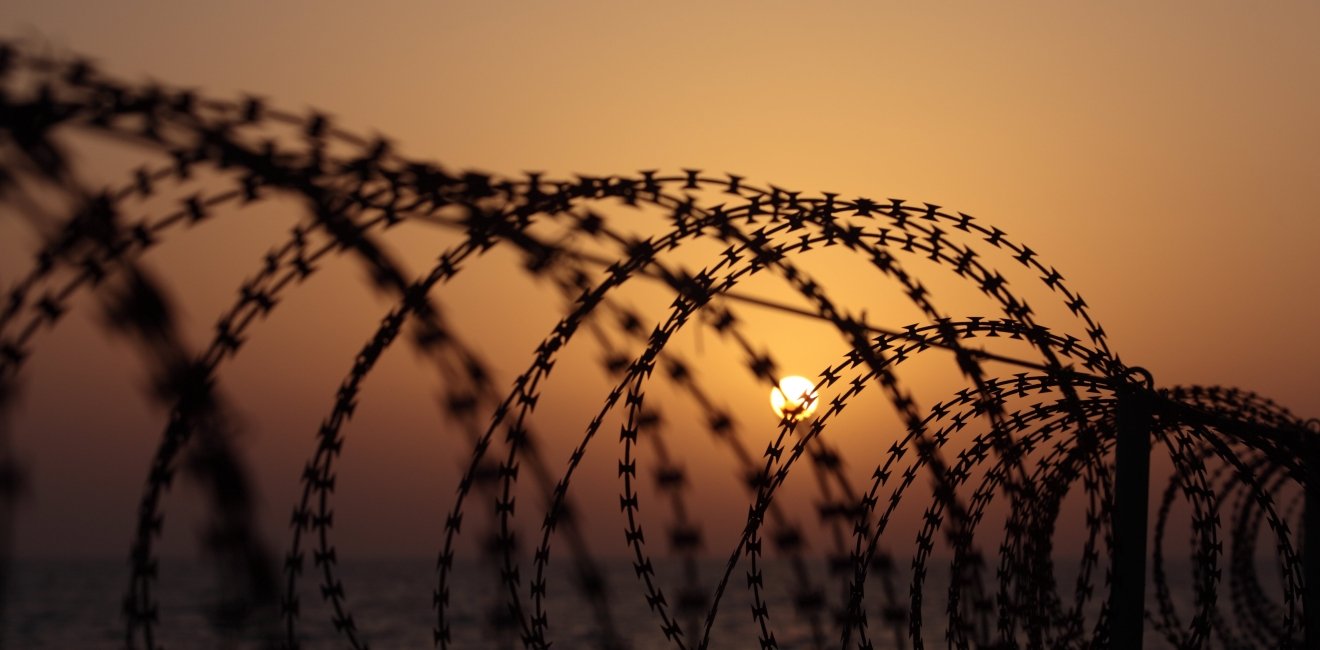Letter from Afghanistan: A Slow Death
Benazir Habibzadeh fought for the right to education in Afghanistan; she writes a letter recounting her experience under the renewed Taliban regime.

A blog of the Middle East Women's Initiative
Benazir Habibzadeh fought for the right to education in Afghanistan; she writes a letter recounting her experience under the renewed Taliban regime.

My dreams were not much: just to have an Afghanistan where everyone—men and women alike—has equal rights and obligations and where there would be no such thing as violence against women.
I am writing this letter from prison. I am in a prison ruled by the Taliban. I am an Afghan girl, and I have been in prison for more than two years, deprived of all basic rights like education and work. Like hundreds of millions of girls around the world, I had hopes—hopes for a better life and for a better tomorrow. I do not just think of myself but of all the women in this country who suffer similar pain, and I understand their suffering.
My dreams were not much: just to have an Afghanistan where everyone—men and women alike—has equal rights and obligations and where there would be no such thing as violence against women. But with the arrival of the Taliban, everything has been destroyed.
When the Taliban first took control of Herat, I was terrified. I imprisoned myself in my house, and, out of fear, did not even step into my backyard for several weeks. I could not return to my normal state. In shock, I was unable to comprehend how our collective dreams went to hell overnight.
But when I regained my composure, I realized that I could not be silent. In every situation, I had to be a voice for all the girls who could not raise their own. As was expected, after the Taliban entered Afghanistan, girls fell silent and watched. Everyone was waiting, expecting resistance and defiance from the other, but no one took the initiative.
So, I decided to take the lead. I picked up my phone, called several of my classmates, and asked them not to remain silent. We prepared ourselves, trembling with fear. We put on our masks and went outside. Horror was visible in our eyes; we felt everyone watching us.
But later, I felt like a gladiator fighting against the injustice and tyranny of the Roman Empire. I felt like Spartacus, rebelling against slavery and humiliation. I felt unstoppable. Eventually, we reached our school. No one allowed us in, but we did not need anyone’s permission. We went anyway.
We shouted in front of the Taliban, calling for education for Afghan girls, and entered the school courageously like revolutionaries. We returned to our classroom. The Taliban threatened the school administration, recorded our names, and prevented them from sending teachers. The Taliban threatened to imprison us, but we did not give in. We tried to study, but we understood that nothing was like before. Not only was there no effort to improve the lives of Afghan women, but the Taliban actively impeded women’s progress and systematically organized to neutralize the resistance efforts of people like me.
We stayed in school for the entire day and then returned home as usual. The Taliban prepared for our return. They threatened the school administration, our teachers, our families, and every one of us in different ways. My classmates were afraid of being abducted by the Taliban—they did not dare accompany me afterward. I waited, hoping things would get better.
But I came to understand that the Taliban are an affliction, like cancer, that grows stronger with time. Their impact on Afghan society, especially on women, has become more evident. They use the power of the gun, the media, religious ideology, foreign money, and organized diplomatic propaganda to marginalize women and blow away our hopes. I love my dreams and miss them dearly.
The views expressed in this article are those of the author and do not express the official position of the Wilson Center.
This piece is part of the "More to Her Story" series with Enheduanna. This series spotlights the voices of women and girls from the Middle East & North Africa region and offers a platform for their rarely told stories.


The Wilson Center’s Middle East Program serves as a crucial resource for the policymaking community and beyond, providing analyses and research that helps inform US foreign policymaking, stimulates public debate, and expands knowledge about issues in the wider Middle East and North Africa (MENA) region. Read more


The Middle East Women's Initiative (MEWI) promotes the empowerment of women in the region through an open and inclusive dialogue with women leaders from the Middle East and continuous research. Read more



